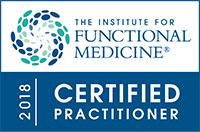 Overexposure to toxins can hinder your body’s ability to eliminate toxins from the body.
Overexposure to toxins can hinder your body’s ability to eliminate toxins from the body.
An overloaded detoxification pathway may lead to clinical patterns such as immune dysfunction or endocrine disruption. Food and nutrients that support liver function may help alleviate toxic burden, allowing the body to operate more efficiently and improve resilience. The metabolic detoxification process is commanded primarily by the liver and intestines, so filling your body with foods that aid this process is essential. A healthy, metabolic-supporting diet focuses on quality protein, healthy fats, greens, and a variety of seasonal fruits and veggies. To boost detoxification enzymes that help neutralize harmful environmental agents, try including some of these in your diet:
- cruciferous vegetables
- soy
- garlic
- spices, like turmeric.
It’s also important to avoid food-based toxicant exposure. Limit your intake of:
- seafood that is high in heavy metals
- non-organic fruits and veggies (may contain pesticide residue)
- dairy products (which may contain antibiotics and other chemicals)
Limiting or eliminating certain foods to reduce the total intake of toxicants while consuming
more fruits and vegetables rich in antioxidants and anti-inflammatory nutrients may support the liver and promote efficient biotransformation and elimination. If you are feeling sluggish, inflamed, or are experiencing gastrointestinal issues, call our office to see if your liver might be at the root of the problem!


